Whether you’re relying on NaNoWriMo to crank out a draft of the epic fantasy novel that’s been on your mind since middle school or simply getting into the practice of writing regularly, craft books are an indispensable part of the writer’s journey. Craft books can provide an essential masterclass in creative writing, especially for those who can’t afford MFA programs or lack a community of writers and beta readers to offer support and exchange feedback. They emphasize the various elements ranging from plot to characterization that make up a compelling story while also offering practical tips to improve your craft—alongside invaluable wisdom from your favorite published authors!
If you’re an aspiring speculative fiction author or a veteran struggling with writer’s block, our list of craft books with a special focus on science fiction and fantasy are guaranteed to get your draft out of a tough spot, create unique magic systems and mythologies for your fictional world and provide industry knowledge that you won’t readily find anywhere else. So, start reading—and writing!
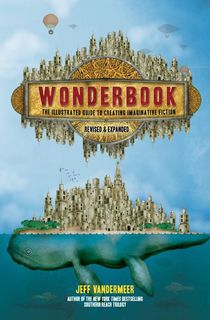
Wonderbook
Aimed at beginners and intermediate writers, Wonderbook is the perfect creative guide to kickstart your writing journey, from Jeff VanderMeer, the bestselling and critically acclaimed author of the Southern Reach trilogy and more. Packed with awe-inspiriting visuals, writing prompts, and craft essays from established authors in the field (such as George R.R. Martin, Lev Grossman, Michael Moorcock and others), Wonderbook promises to be an accessible and informative volume.
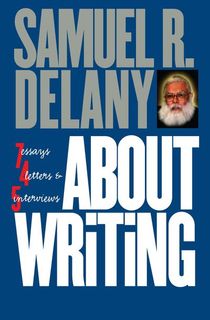
About Writing
One of the most seminal science fiction writers still alive today, Delany’s work is commonly associated with the New Wave in science fiction and remain powerfully relevant. As a Black, gay and dyslexic author, Delany discusses the politics of writing in various essays and interviews collected in this book. Readers get a glimpse into Delany’s own writing process, techniques on writing flashbacks and structuring novels, and vital insight about contemporary literary careers. This book is recommended for advanced writers, especially those serious about getting published.
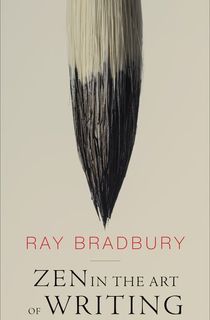
Zen in the Art of Writing
Zen in the Art of Writing is a memoir and writing guide by Ray Bradbury, a prolific writer of science fiction, with over 500 short stories and several novels published in the course of his long career. This book is perfect for those struggling with their creativity. If you’ve been feeling disconnected or dispirited in your craft lately, Bradbury’s confident tone and lucid prose will help you rediscover the joy and excitement in any creative endeavor, and will hopefully motivate you to get back to honing that novel draft or short story collection.

On Writing
A must-have on any writer’s bookshelf, On Writing is divided into five sections, packed with autobiographical details that influenced Stephen King’s career as a successful novelist, along with useful writing advice and a discussion of the mechanics of the English language. You don’t necessarily need to be familiar with King’s work to benefit (although it helps), and it is particularly great for avid readers who are unsure about taking that writing plunge!
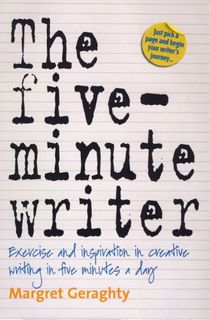
The Five-Minute Writer: Exercise and inspiration in creative writing in five minutes a day
Let’s face the elephant in the room—many of us would be more prolific writers if we just had more time. Full-time jobs, familial responsibilities,and hectic schedules all make it highly difficult for some people to “find’ the time to write. And if you’re one of those people, then Margret Geraghty’s book is the one for you. Through 58 short activities, Geraghty will train you to think creatively, improve your craft and write regularly—you just need to spare a few minutes each day. Moreover, the exercises can be completed in any order, so you can dip in and out of the book as you please.
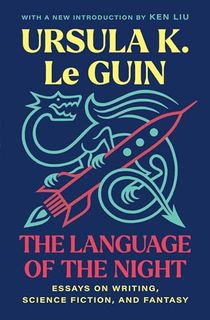
The Language of the Night: Essays on Writing, Science Fiction, and Fantasy
Ursula K. Le Guin wrote for both children and adults, and her fiction and non-fiction have been highly influential in shaping the trajectory of science fiction and fantasy. While her Earthsea Cycle laid the foundations for the magical young adult genre, her adult books such as The Dispossessed and The Left Hand of Darkness insightfully probe into notions of gender, sexuality, and how governments and societies are structured, and more.
Her critical essays collected in this seminal volume delve into the politics of fantasy and science fiction and are particularly suited for astute writers looking to understand how American SFF has developed over the ages, the strengths and weaknesses of various sub-genres and the qualities of strong writing.
First published in 1977, a new edition of Language of the Night is now available, with an introduction by Ken Liu. As a companion read, you can also pick up Le Guin’s Steering the Craft: Exercises and Discussions on Story Writing for the Lone Mariner and the Mutinous Crew—ideal for self-guided fiction writers.

Meander, Spiral, Explode: Design and Pattern in Narrative
If you’re a speculative writer with a more literary bent or you’re simply tired of stories that follow formulaic three-act structures and are looking to write something different, Jane Alison’s book is chock-full of creative ideas to get you started. Alison draws upon non-western storytelling traditions, patterns found in nature, and alternative literary strategies to find new ways in which one can experiment with plot and language. Alison analyzes the non-linear prose of several literary fiction and experimental authors, inviting the reader to think out of the box and embrace originality in both form and content. If you’re aiming to write something that’s unique, experimental and/or non-traditional, Alison’s book is a great place to start, filled with inspiration and insight.
Featuered image: Annie Spratt / Unsplash




